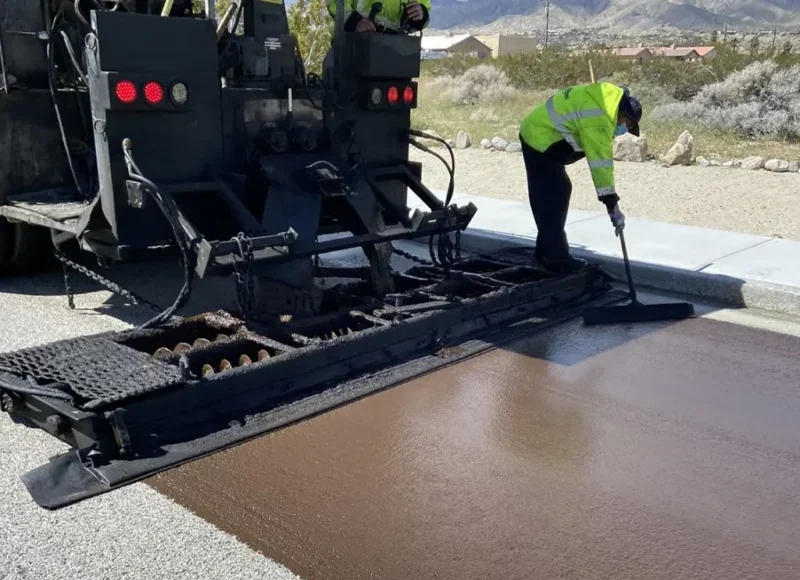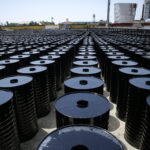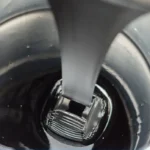What Is Bitumen Emulsion? | Complete Guide to Types, Applications & Benefits
Bitumen emulsion is a widely used material in modern road construction and maintenance. It is a mixture of bitumen, water, and an emulsifying agent, designed to make the application of bitumen easier, safer, and more eco-friendly. Unlike traditional hot bitumen, emulsions can be applied at ambient temperatures, reducing energy consumption and environmental impact.
At Pars Universal Bitumen, we manufacture and supply a complete range of bitumen emulsions that meet international specifications and are tailored to regional construction needs.
🔍 Understanding Bitumen Emulsion
Bitumen emulsion is a homogeneous blend in which tiny droplets of bitumen are dispersed in water with the help of an emulsifier. These emulsions are typically made up of:
-
Bitumen (40–70%)
-
Water (30–60%)
-
Emulsifying agents (0.1–2%)
The emulsifier plays a crucial role by preventing the bitumen particles from coalescing, ensuring a stable suspension until the emulsion is applied and cured.
How Bitumen Emulsion Is Made
The production process involves using a colloid mill, where hot bitumen is blended with water and emulsifier under high shear force. This process breaks the bitumen into microscopic droplets, which are then suspended in the water phase.
Because bitumen is hydrophobic, emulsifiers are essential to create a stable dispersion and allow the emulsion to remain fluid until application.
Emulsified bitumen is a mixture of bitumen (asphalt binder) and water, along with an emulsifying agent. It is a versatile and widely used product in various applications such as road construction, surface treatment, and waterproofing.
⚙️ Types of Bitumen Emulsion
Emulsified bitumens are classified based on electrical charge and setting time.
1. Based on Electrical Charge
-
Cationic Emulsion (+): Positively charged emulsions that adhere well to negatively charged aggregates. Most commonly used worldwide.
-
Anionic Emulsion (−): Negatively charged emulsions suited for specific aggregate types like limestone.
2. Based on Setting Time
-
Rapid Setting (RS): Breaks quickly when in contact with aggregate. Used in surface dressing.
-
Medium Setting (MS): Breaks at a moderate rate. Ideal for premix and patching.
-
Slow Setting (SS): Breaks slowly. Suitable for mixing with fine aggregates and cold recycling.
Emulsified bitumens are classified into three main types: cationic, anionic, and non-ionic, depending on the charge of the emulsifying agent.
Cationic emulsions are the most commonly used and provide excellent adhesion to aggregates.
Anionic emulsions are primarily used for surface treatments, while non-ionic emulsions offer versatility and are used for specialized applications.
🏗️ Common Applications of Bitumen Emulsion
Emulsified bitumens are used in a variety of road construction and maintenance activities:
-
Tack Coat: Applied between layers of asphalt to promote bonding.
-
Surface Dressing: A cost-effective resurfacing method.
-
Slurry Seal / Micro Surfacing: Used to seal and restore road surfaces.
-
Cold Mix Asphalt: Used in road construction without heating.
-
Fog Seal: A light application to rejuvenate aging surfaces.
-
Prime Coat: Applied to the base before laying hot mix asphalt.
-
Pothole Repair: Cold patching and maintenance in all weather conditions.
The emulsifying agent helps to disperse the bitumen into tiny droplets in water, creating a stable suspension. This process is achieved through mechanical mixing or specialized equipment called a colloid mill. The resulting emulsion has a milky appearance and can be further classified based on its setting time and application.
🌱 Advantages of Using Bitumen Emulsion
Using bitumen emulsion provides several key benefits:
✅ Energy Efficient: Eliminates the need for high heating temperatures.
✅ Environmentally Friendly: Reduces harmful emissions.
✅ Cost-Effective: Lowers fuel consumption and improves logistics.
✅ Safe to Handle: Minimizes risk of burns and fire hazards.
✅ Versatile: Applicable in a wide range of climates and project types.
Emulsified bitumen offer several advantages over traditional hot bitumen:
First, they can be applied at lower temperatures, reducing energy consumption and emissions during the construction process. This makes them more environmentally friendly and safer to handle.
Second, Emulsified bitumen provide improved coating and adhesion to aggregates, resulting in better bonding and enhanced pavement performance. The smaller droplet size allows for better penetration into the pores of the aggregate, ensuring a more durable and long-lasting pavement.
Furthermore, Bitumen Emulsion can be used for a wide range of applications. They are commonly used in surface treatments such as slurry seals and micro-surfacing to provide a protective layer and extend the life of existing pavements. They are also used in chip seals, tack coats, and prime coats to enhance the bonding between layers and improve the overall performance of the pavement.
In addition to road construction, Emulsified bitumens find applications in other industries as well. They are used in waterproofing applications such as roofing, damp-proofing, and sealing of joints and cracks. They are also utilized in the manufacturing of paints, coatings, and adhesives.
🤝 Why Choose Pars Universal Bitumen?
We specialize in supplying high-quality bitumen emulsions with reliable performance and international certification. Our products are exported globally to over 25 countries.
✅ What We Offer:
-
Cationic and anionic grades (RS, MS, SS)
-
Packaging in drums, IBCs, and tankers
-
COA and MSDS with every order
-
Fast shipping and flexible delivery
-
Custom formulations upon request
❓ FAQs About Bitumen Emulsion
1. What is the shelf life of bitumen emulsion?
Most emulsions have a shelf life of 3–6 months if stored in sealed containers away from direct sunlight.
2. Can Emulsified bitumen be used in wet weather?
Yes, emulsions can be applied in damp conditions, but dry weather is preferred for setting.
3. Is heating required before using emulsion?
No. Bitumen emulsion can be used at ambient temperature, making it ideal for remote or energy-sensitive sites.
4. What’s the difference between cationic and anionic emulsions?
Cationic emulsions are positively charged and stick better to most road aggregates. Anionic emulsions are negatively charged and suitable for special aggregate types.
5. Does Pars Universal Bitumen provide bulk delivery?
Yes. We supply in drums, IBCs, flexi tanks, and bulk tankers with international shipping.
Conclusion: Bitumen Emulsion Is the Future of Road Construction
Bitumen emulsions offer a modern, efficient, and environmentally conscious alternative to traditional hot bitumen. From tack coats to full surface treatments, they provide reliable bonding, durability, and ease of use.
At Pars Universal Bitumen, we are committed to delivering high-quality emulsions tailored to your project needs. Whether you’re a civil contractor, road builder, or public works authority—we’re your trusted global partner.
📞 Contact Pars Universal Bitumen
Boost your road construction projects with the right bitumen emulsion solution.
📧 Email: [email protected]
📞 Phone: +971 4 878 2031
🌐 Visit: www.pub-ltd.com
➡️ Request a Quote Today and discover our reliable, cost-effective bitumen emulsion supply options. If You have any other Query or Question you want to ask, Please don’t hesitate to Contact Us.





